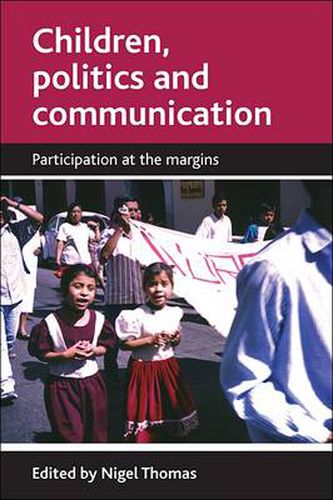Readings Newsletter
Become a Readings Member to make your shopping experience even easier.
Sign in or sign up for free!
You’re not far away from qualifying for FREE standard shipping within Australia
You’ve qualified for FREE standard shipping within Australia
The cart is loading…






Even after 20 years of children’s rights and new thinking about childhood, children are still frequently seen as apolitical. All over the world there has been a growing emphasis on ‘participation’, but much of this is adult-led, and spaces for children’s individual and collective autonomy are limited. Children, politics and communication questions many of the conventional ways in which children are perceived.
It focuses on the politics of children’s communication, in two senses: children as political actors, and the micropolitics of children’s interaction with each other and with adults. It looks at how children and young people communicate and engage, how they organise themselves and their lives, and how they deal with conflict in their relationships and the world around them. These are children at the margins, in various ways, but they are not victims; they are finding ways to take charge of their own lives.
The book is also about adults and how they can interact with children and young people in ways that are sensitive to children’s feelings, empowering and supportive of their attempts to be autonomous. With international contributions from a range of disciplines, Children, politics and communication is timely and relevant for policy makers, practitioners and researchers engaging with children and young people.
$9.00 standard shipping within Australia
FREE standard shipping within Australia for orders over $100.00
Express & International shipping calculated at checkout
Even after 20 years of children’s rights and new thinking about childhood, children are still frequently seen as apolitical. All over the world there has been a growing emphasis on ‘participation’, but much of this is adult-led, and spaces for children’s individual and collective autonomy are limited. Children, politics and communication questions many of the conventional ways in which children are perceived.
It focuses on the politics of children’s communication, in two senses: children as political actors, and the micropolitics of children’s interaction with each other and with adults. It looks at how children and young people communicate and engage, how they organise themselves and their lives, and how they deal with conflict in their relationships and the world around them. These are children at the margins, in various ways, but they are not victims; they are finding ways to take charge of their own lives.
The book is also about adults and how they can interact with children and young people in ways that are sensitive to children’s feelings, empowering and supportive of their attempts to be autonomous. With international contributions from a range of disciplines, Children, politics and communication is timely and relevant for policy makers, practitioners and researchers engaging with children and young people.